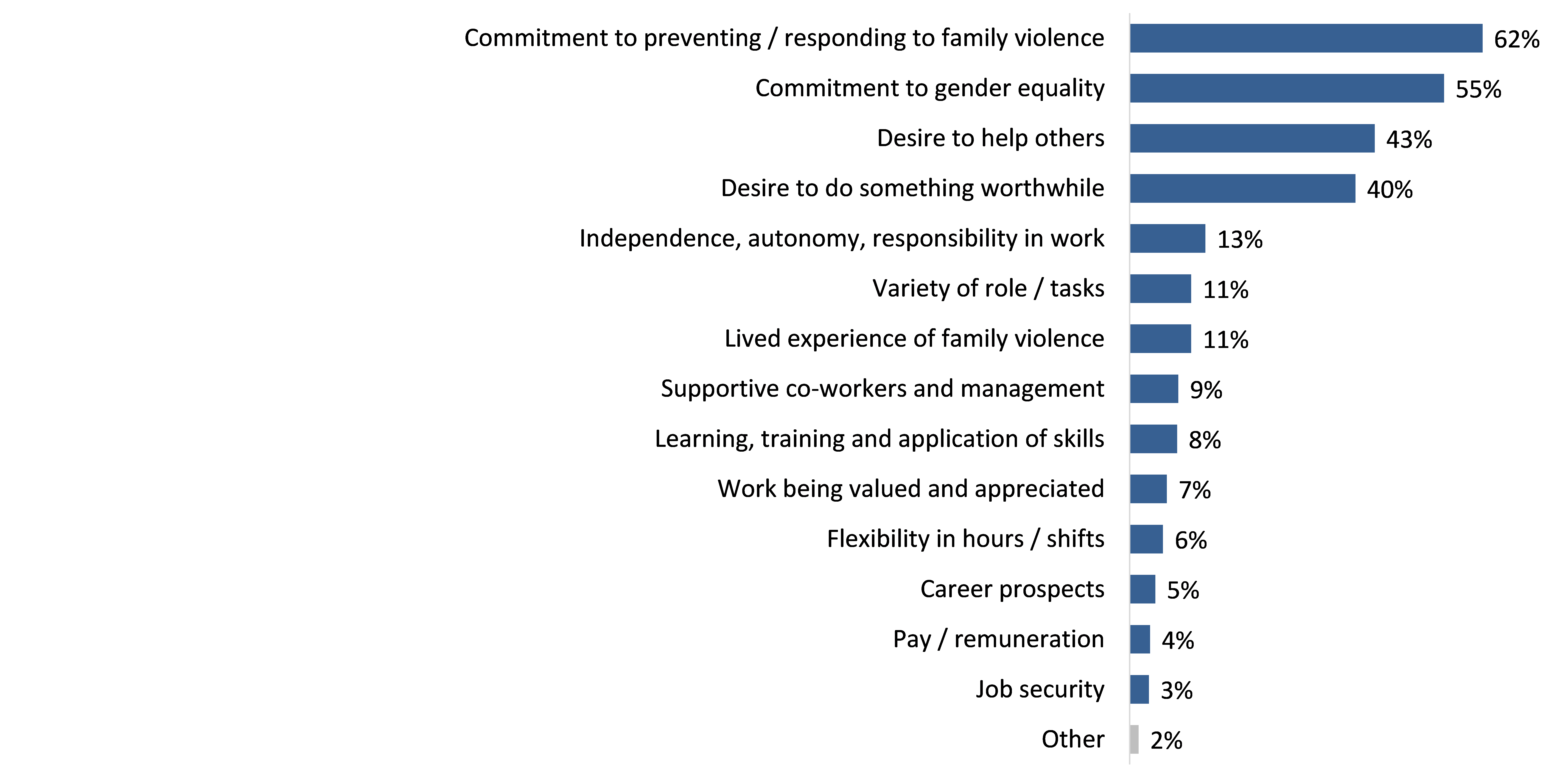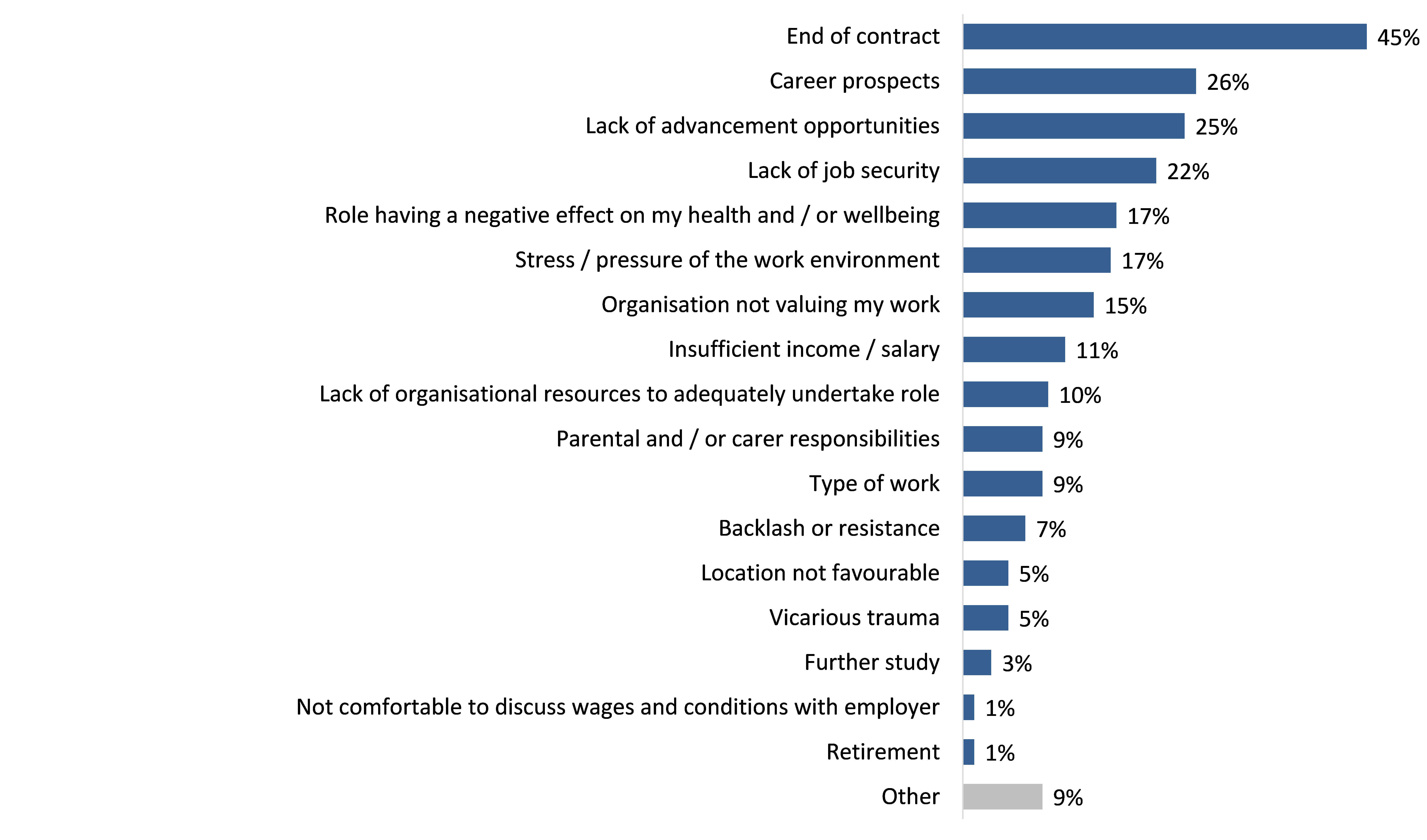Overall, the results illustrated that the primary prevention workforce shared a number of positive reasons for working in the primary prevention workforce, including a strong commitment to preventing/responding to family violence and gender equity.
Regarding future intentions, almost half of all primary prevention practitioners reported that they had plans to leave their current role. Although many planned to do so due to an end of contract, others were influenced by better career prospects and lack of advancement opportunities.
When asked what mainly motivates them to work in their primary prevention role, a commitment to preventing and responding to family violence, as well as to gender equity, were the most common reasons cited (55%-62% – see Figure 22). Around four-in-ten respondents were also motivated by a desire to help others (43%) and do something worthwhile (40%). This workforce was least motivated by job security (3%), pay/remuneration (4%) and career prospects (5%).
Before commencing their current role in the primary prevention workforce, just over one-third had held a role working for another organisation or agency in the sector (within Victoria – 35%). Around one-quarter (26%) had been working in a related sector, whilst 16% had been working in an unrelated sector, illustrating the diversity of this workforce in terms of career pathways and trajectories.
Footnotes
- Q71. Thinking about your future, do you have plans to leave your current role? (n=446)
Updated

